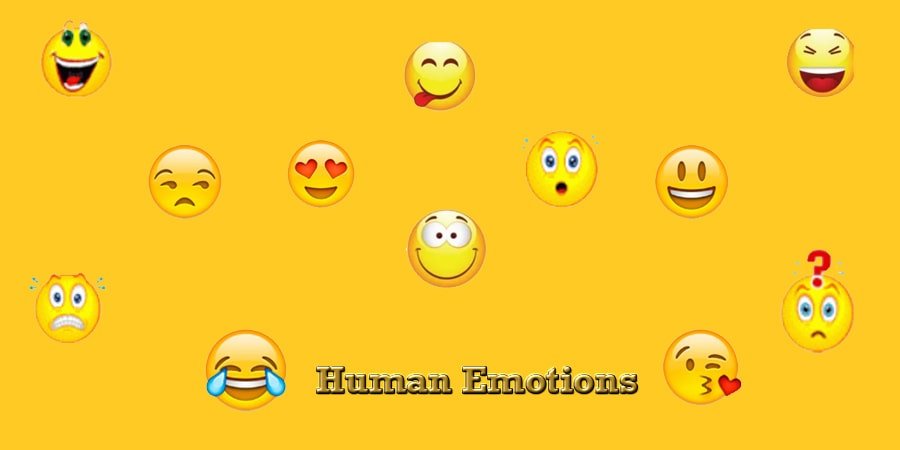Human Emotions

Emotions are the architects of our lives, shaping our decisions and defining our experiences.
Human emotions are like vibrant colors that paint our experiences, shaping how we connect with ourselves and others. From the joy of a shared laugh to the sorrow of a heartfelt goodbye, our feelings guide our actions and decisions every day. Each emotion tells a story, revealing the complexities of our inner world. By understanding these emotions, we can unlock deeper connections and foster empathy in our relationships.
As we journey through life, our emotions act as both a compass and a mirror, reflecting our desires, fears, and dreams. They inspire us to create, motivate us to change, and challenge us to grow. In this blog, we will explore different human emotions. Join us as we uncover the beauty and power of what it truly means to feel.
Different Types of Human Emotions
Anticipation
Anticipation is a typically positive mood, sparked by the expectation of a specific event or outcome. Picture the excitement in the air as you wait in line to buy your favorite chocolate milk at the supermarket. You’re looking forward to that first sip.
However, anticipation isn’t always joyful. Imagine sitting in an exam room, worrying about the questions you’ll face. Here, anticipation mingles with anxiety. While it can bring both positive and negative feelings, it often leans toward the positive, especially when the individual is in a healthy and neutral state.
Fear
Fear is a powerful emotion that plays a key role in our fight or flight response. When faced with a stressful situation, your heart races, your muscles tense, and your mind becomes hyper-focused. The body’s natural instinct is to either confront the danger or escape from it.
Fear prepares you to handle the challenges that your environment presents, whether it’s in a physical or organizational setting. This emotion can be expressed through attempts to flee, facial expressions like widened eyes, or physiological reactions such as an increased heart rate.
Fear varies greatly from person to person. Some are more sensitive to certain triggers, and for them, fear might be an intense emotional response to even a sudden threat.
Disgust
Disgust is an emotion we often experience without realizing its frequency. It’s the feeling of aversion toward things we find dirty or repulsive. Beyond its physical manifestations, disgust can also reflect deeper, often unconscious, moral judgments or prejudices.
Historically, disgust helped our ancestors avoid harmful substances, like toxic foods, making it a crucial survival tool. However, in today’s world, this emotion has evolved beyond food safety, influencing our moral, social, and cultural perceptions, sometimes unfairly so.
Joy
Joy is a bright, positive emotion that emerges when we experience or anticipate something good. It’s the happiness you feel when you witness a positive event, like the birth of a child or a personal achievement. Joy signals that you’re on the right path, offering hope and encouragement to continue pursuing what brings you happiness.
Sadness
Sadness is often seen as the opposite of joy. While joy stems from gain, sadness is tied to loss—whether it’s the loss of a loved one, a treasured item, or an opportunity. This emotion can be overwhelming, leading us to seek comfort and protection from further emotional pain.
Sadness often accompanies or underlies other emotions like sympathy, disappointment, or anger, making it a complex and deeply felt experience.
Anger
Anger is one of the most intense emotions, manifesting as feelings of hostility, frustration, or even rage. It can be expressed through a raised voice, aggressive body language, or physical reactions like a flushed face.
While anger is often seen as negative, it can also be constructive. It can drive us to solve problems, make decisions, or take action in situations where change is needed.
Surprise
Surprise is the emotion of astonishment, triggered by an unexpected event. It can be either positive or negative, depending on the circumstances. A surprise, whether good or bad, is one of the most potent emotions because it releases dopamine, giving your brain a burst of energy and focus
Trust
Trust is the feeling of confidence in someone or something. It’s more than just a feeling; it’s an emotional foundation upon which other emotions like love, admiration, or even anger are built. Trust is essential in relationships, as it allows us to depend on others and believe in their intentions.
Conclusion
Emotions are the threads that weave the fabric of our lives. Each one, whether positive or negative, plays a vital role in shaping who we are and how we connect with the world around us. By understanding and embracing these emotions, we can deepen relationships, grow as individuals, and navigate the complex nature of life with greater empathy and insight.